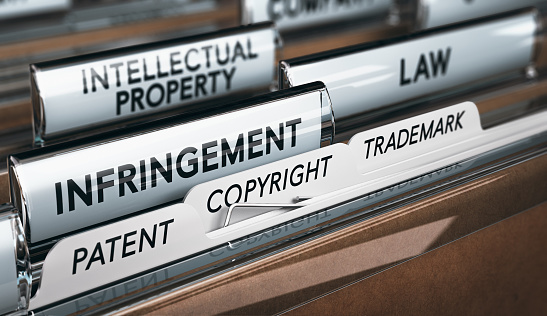Recent Articles
The 'License as Tax' Fallacy
Article, Spring 2022
Unreasonable: A Strict Liability Solution to the FTC's Data Security Problem
Article, Spring 2022
The Ping-Pong Olympics of Antisuit Injunction in FRAND Litigation
Article, Spring 2022
Content Moderation Remedies
Article, Fall 2021
An Empirical Study: Willful Infringement & Enhanced Damages in Patent Law After Halo
Article, Fall 2021
Recent Notes
The Best Data Plan Is to Have a Game Plan: Obstacles and Solutions to Reaching International Data Privacy Agreements
Note, Spring 2022
Mental Health Mobile Apps and the Need to Update Federal Regulations to Protect Users
Note, Spring 2022
Blog Posts
Swipe Right for Privacy
The mobile application market is flooded with dating apps: Tinder, OkCupid, Coffee Meets Bagel, Hinge, Bumble, and dozens more. They might make love happen, but they also risk more than just a bad date.
Tighter Regulations, Less Competition
China’s new e-commerce law fights counterfeits and rewards incumbents.
My Data Has Been Breached—Can I Sue?
Earlier this week, Facebook announced that 50 million user accounts had been compromised in a data breach. This is just the latest episode in a series of high profile and far-reaching data breaches in which consumers’ sensitive personal and financial information has been exposed or stolen.
Legislating Loot Boxes
How much is Darth Vader worth? This question has, in a roundabout way, caused some legislators and regulators to look at how video games make their money. The recently-released video game Star Wars Battlefront II originally had a profit model which locked large portion of the game off behind timed barriers. One estimate, for example, was that it would take roughly 40 hours to unlock the ability to play as Darth Vader. This wait could be drastically reduced by purchasing loot boxes, which had a chance of containing in-game currency. One estimate claimed that, under Battlefront II’s original pricing model, it would take, on average, over 4500 hours to unlock everything. Conversely, the loot box payout structure would have given the same result for roughly $2100. Although, as of this writing, the game’s publisher has scrapped this pricing model after a huge backlash, it brought the issue of loot boxes to the attention of the public and legislators.
Access to Open Records and Electronic Media
Imagine that you are a journalist producing online content for ESPN at ESPN’s headquarters in Bristol, Connecticut. Your editor assigns you to cover the return of the Auburn Tigers to the top echelons of college football and how the Alabama Crimson Tide, one of the perennial powers of the sport, returned to the College Football Playoff under controversial circumstances.
Smart Drones and FAA Regulations
Drone deliveries have already made an appearance in our online shopping experience. For example, Amazon Prime Air made its first delivery in December 2016 and has made even more ambitious journeys in the United Kingdom. Before all of our parcels are delivered that way, however, there are several regulatory hurdles. The Federal Aviation Administration UAS operational rules require a pilot to operate the drone within a visual line of sight and limits flight times to daylight and twilight hours. The FAA offers waivers for operators who could conduct flight safely; this provision is meant to allow commercial enterprises and other organizations to explore ways to make drone flight technology more safe and secure and to shape future regulations as drone use continues to expand.


